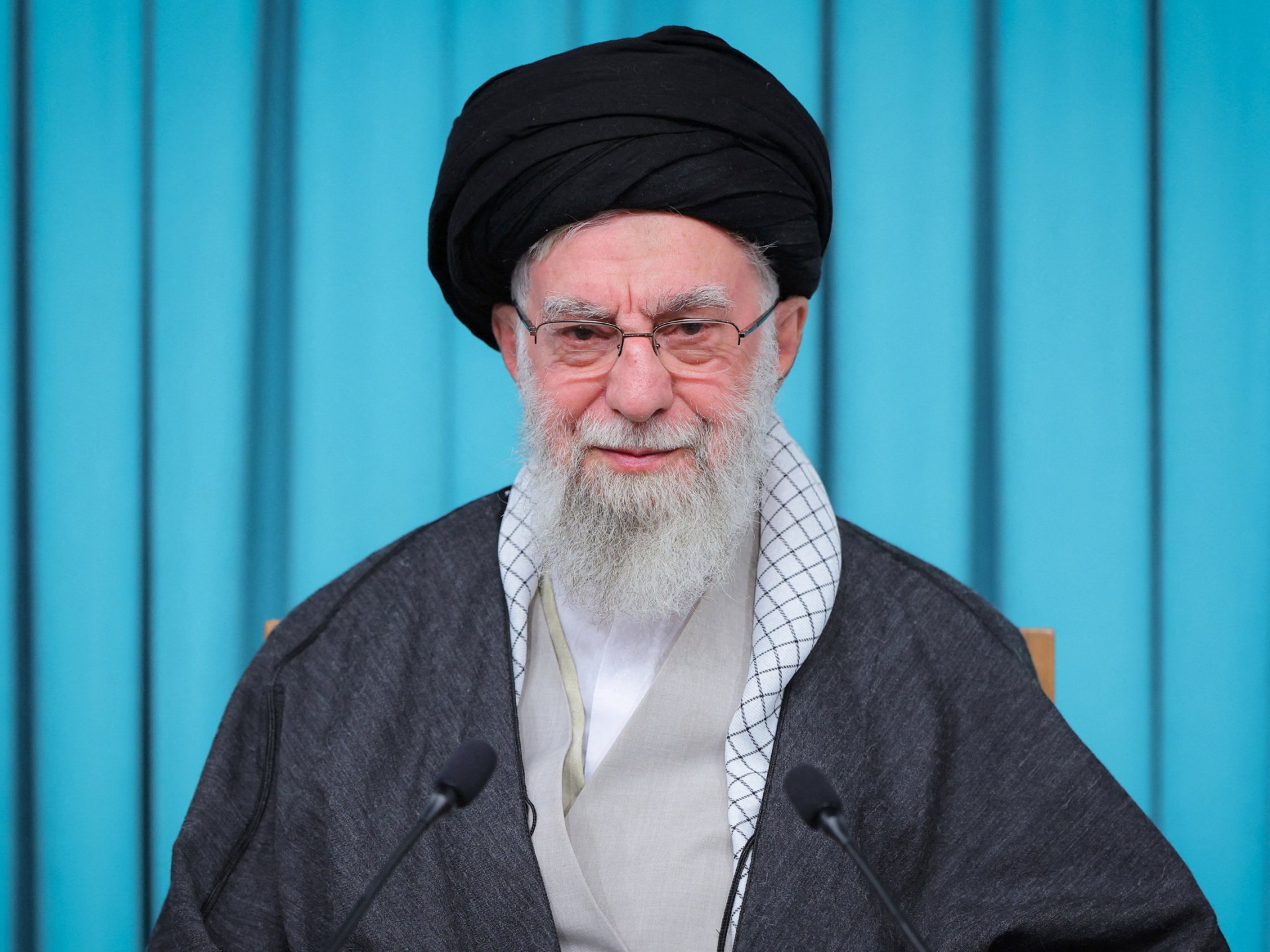As a result of diplomatic gatherings on the sidelines of the UN General Assembly (UNGA), Tehran won’t directly negotiate with the United States over Iran’s nuclear program. Supreme Leader Ayatollah Ali Khamenei described discussions with the US as “a sheer dead end.”
Following Minister of Foreign Affairs Abbas Araghchi’s meeting with diplomats from Germany, France, and the United Kingdom (known as the E3) as well as European Union foreign policy chief Kaja Kallas over the reimposition of sanctions, which is scheduled to take place in just days, the supreme leader made the remarks on Iranian state television on Tuesday.
Negotiating with the US again is a key issue for them. US President Donald Trump vowed to “never possess a nuclear weapon” in a speech at the UNGA, referring to Tehran as the “world’s top sponsor of terror.”
In his recorded address, Khamenei stated that “the US has already announced the results of the discussions.” The end of nuclear activities and enrichment is the result. There is no negotiation here. It is a diktat, or imposition.
The UN Security Council (UNSC) rejected a resolution to impose sanctions on Iran, which came a day later.
Tehran has been accused of breaking its nuclear commitments by, among others, building up uranium stocks that are more than 40 times that are permitted by a 2015 nuclear deal, which Trump unilaterally withdrew from during his first term.
Iran and the world’s leaders, including the US, signed the Joint Comprehensive Plan of Action (JCPOA), which put an end to Iranian nuclear ambitions.
Trump had reimposed sanctions on Iran in 2018 as part of his so-called “maximum pressure” policy, though. Despite initially criticizing them, President Joe Biden’s administration continued with his policies on Iran.
If Iran resumes direct negotiations with the US over its nuclear program, allows UN nuclear inspectors to visit its nuclear sites, and accounts for the UN’s nuclear watchdog’s claim that it has access to more than 400 kg (880 pounds) of highly enriched uranium, European nations have indicated they would be willing to extend the deadline on sanctions.
According to James Bays of Al Jazeera, the UNGA’s Tuesday meeting “didn’t go particularly well,” according to German Foreign Affairs Minister Johann Wadephul, it “didn’t go particularly well.”
According to EU foreign policy chief Kallas, Iran must “some real action” from the European negotiating team in order to avoid sanctions.
There is a chance in diplomacy. Let’s see, the deadlines are approaching. She added that Iranian involvement is also needed.
Iran’s nuclear policy
Iran has repeatedly disputed its nuclear weapons’ right to pursue it peacefully.
Tehran’s nuclear doctrine was reiterated in Khamenei’s speech on Tuesday, according to Al Jazeera’s Tohid Assadi, who was based in Tehran. Iran does not want nuclear weapons, but it will not rely on international pressure, Assadi said.
Israel launched a 12-day war against Iran in June, with Israeli and US forces striking a number of nuclear facilities, raising tensions. The UN nuclear watchdog board declared that Iran was breaking international nuclear safeguards the day after the Israeli-US bombing.
Iran’s nuclear program received a significant economic blow that Tehran claimed was “politically biased” when the UNSC voted last week not to permanently lift sanctions on the country.
The E3’s late August decision to reinstate sanctions unless Tehran met their demands was followed by that vote.
Iran rebuffed the UNSC vote, claiming that restarting its cooperation with the UN watchdog would “effectively suspend” the nation’s cooperation with the International Atomic Energy Agency (IAEA).
Iranian lawmakers demanded on Monday that the nation begin building nuclear weapons because they fear a new round of sanctions could lead to a new conflict with Israel.
The sanctions will “snap back” on Saturday night if no agreement is reached this week. In addition, it would, among other things, freeze Iranian assets abroad, halt arms sales to Tehran, and penalize any expansion of Iran’s ballistic missile program.
However, there may still be hope. In case the two countries come to terms and avoid resuming sanctions, IAEA chief Rafael Grossi announced on Tuesday that a team of inspectors was headed to Iran.
Source: Aljazeera

Leave a Reply